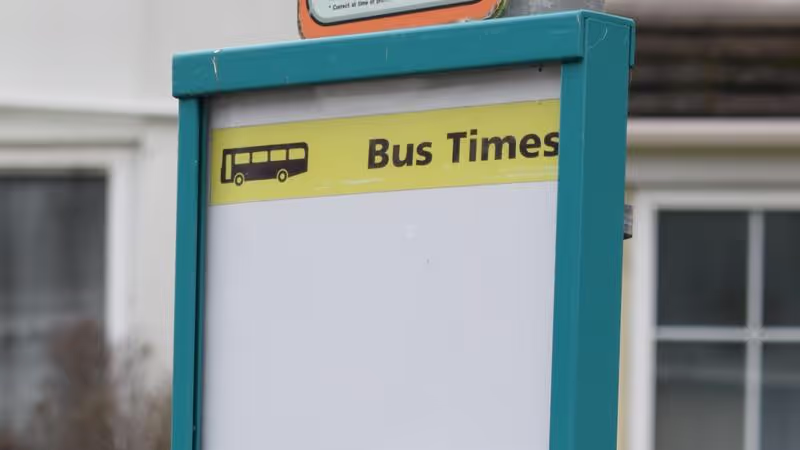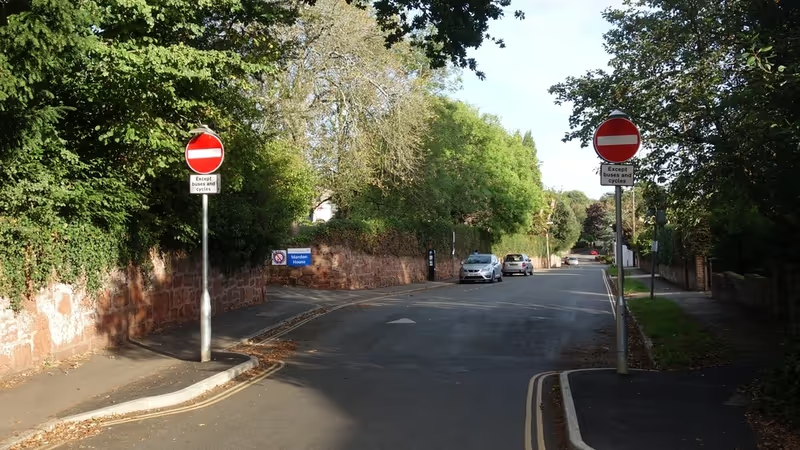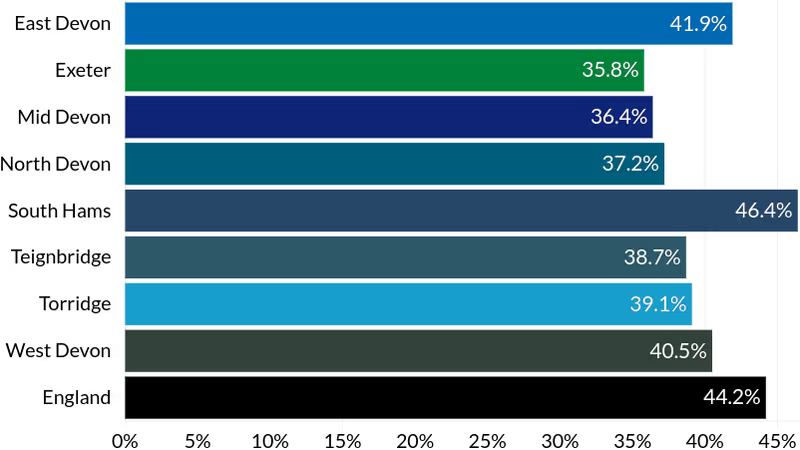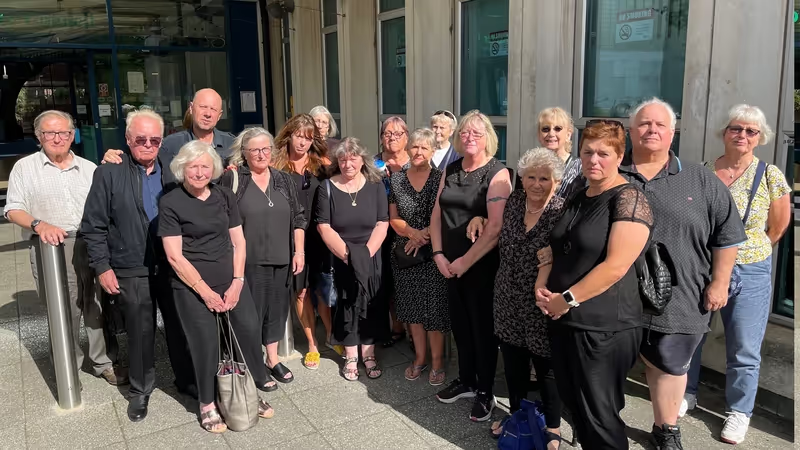Stagecoach South West and Devon County Council took part in a public inquiry last Thursday at the Bristol headquarters of the West of England Traffic Commissioner.
The inquiry was held to examine Stagecoach South West’s performance, particularly on its Exeter routes, after a specially-convened county council transport committee meeting expressed strong criticisms of its bus services in the city and surrounding area earlier this year.
Substantial evidence of the company’s failings was submitted to the inquiry, including material contributed by councillors and aggrieved members of the public, although the county council stressed that it had not solicited this input and had requested the inquiry as a means of responding to public concern.
Traffic commissioner Kevin Rooney concluded that “no action” was not an option at Thursday’s hearing, but delayed a final decision to allow the company to clarify its response.
Stagecoach South West proposed compensation along the lines of a month’s free travel at weekends within Exeter and heavily discounted fares for travel into Exeter over the same period, but said it would need to examine costings before confirming the details.
When prompted by the traffic commissioner to offer more, the company also said it would look at speeding up the introduction of planned improvements to real-time service information provision.
It was given until close tomorrow to provide firm proposals so the commissioner can finalise his decision later this week.

Devon County Council’s case was presented at the hearing by Damien Jones, head of its transport co-ordination service. He said that the evidence showed an unacceptable number of service cancellations exacerbated by insufficient service information provision.
The real-time information systems were a source of particular frustration and the cause of serious problems for passengers. Sometimes information was missing from the company’s app and its 40 bus stop screens, at other times it was inaccurate.
Information flow had not been helped by the centralisation of all Stagecoach operating enquiries into a single customer contact centre in Perth. Staff there had given out inaccurate information and had no understanding of the Exeter and Devon localities.
Mr Jones noted that while the county council could impose sanctions on the company if it failed to deliver contracted services for which the county council provided financial support, no such remedy was available in the case of commercially-operated services.
He said the county council’s working relationship with Stagecoach South West was good, though it had become strained of late, but added that it had low levels of confidence in the company’s ability to improve.
It nevertheless welcomed the company’s assurances that a new timetable which started yesterday would change things for the better.
He added that without improvement, the Enhanced Partnership being put in place as part of the Devon Bus Service Improvement Plan would be at risk, and failure to deliver the partnership would prevent the county council from accessing further government bus service support funding.
Bus service deregulation
Bus services were deregulated by the Transport Act 1985. Until then bus companies had been owned and operated by local councils or the public sector National Bus Company.
Local transport authorities such as Devon County Council controlled services and fare levels, which included specifying service frequency, setting and monitoring quality and safety standards and setting minimum standards and capacities for vehicles.
All this changed after deregulation. Apart from London, where services remain controlled by Transport for London, commercially operated bus companies bought the council-run and National Bus Company operators.
These private companies now determine which routes they want to run and the fares they charge. All that the law requires is that operators and drivers have a licence to operate and that vehicles comply with certain safety requirements.
Such regulation as remains falls to traffic commissioners to enforce. They have overall responsibility for operator licensing compliance and must be notified of changes to routes, including decisions to withdraw them.
Stagecoach South West managing director Mike Watson said he accepted and regretted the extent of the problems experienced by passengers.
He acknowledged that the company had got things wrong, such as assuming that it would be easy to recruit drivers during the pandemic despite the effects of Brexit and more attractive working conditions in the road haulage industry.
Accordingly, Mr Watson said he had focused on attracting drivers to join (or re-join) the company by increasing pay and improving conditions, in particular by reducing evening and weekend work.
He had replaced the senior management team he had inherited with people committed to creating a more supportive and inclusive employment environment. There were now more women in management positions, staff turnover was down and training capacity had increased.
He said that this week’s timetable changes would take place with a manageable shortage of 45 of 900 drivers, and that the next set of timetable alterations in April 2023 would mark the start of a growth trajectory which would restore services to pre-pandemic levels.
He also said these changes had been made without creating any formal trade union disputes.
Traffic commissioners
Traffic commissioners were first created in the 1930’s to supervise a new system of bus licensing developed by the government in response to concerns about safety and inconsistent service standards.
They have since undergone several changes of function and organisation, and are even now the subject of a government review. One constant feature has been that they are government appointees designed to work at arm’s length from both government and local authorities.
There are six geographically-based commissioners in England plus one each for Scotland and Wales. Their current role is to supervise deregulated bus services.
The purpose of last week’s hearing was examine whether Stagecoach South West was failing to comply with section 17 of the Public Passenger Vehicles Act 1981 and sections 26 and 28 of the Transport Act 1985.
A public inquiry with a traffic commissioner is the most serious form of regulatory hearing for a transport operator. It is a formal court proceeding inquiring into whether or not the bus company, and its directors and transport managers, are complying with their licence conditions and undertakings.
At the end of the inquiry the traffic commissioner decides whether to take regulatory action. This can include revoking or suspending the operator licence, reducing the number of vehicles that the company is allowed to operate, disqualifying the company or its directors from holding a licence in the future and issuing a formal warning.
Traffic commissioners have other options in such circumstances, including those outlined in this government guide.
In response to questions from the commissioner and Mr Jones, Mr Watson added that the main reasons for drivers leaving were rostered shifts and, to a lesser extent, pay. He said the company’s working culture was no longer an issue.
He also said that with the exception of the allocation of 60 drivers and their buses to the Commonwealth Games last year under a contract agreed at Stagecoach Group level, the company had abandoned its lucrative non-scheduled business to give priority to maintaining scheduled services, although pay increases and other inflation-driven costs would eventually have to be funded by increasing fares.
It had considered using subcontractors to run some services, but recognised that the effort required to train them to Stagecoach standards would be better deployed to training the company’s own new staff.
He said its decision to centralise customer contact services in Perth had been taken before the pandemic had led to a large increase in the number of people seeking assistance, and a local resource had since been re-established.
He also said that the company’s app was generally effective at providing service information – particularly via its live maps – though problems remained with data accuracy which were being addressed.
Editor’s note: Stagecoach Devon Limited is the registered name of Stagecoach South West but as the latter is in common use the company has been referred to this way above.








